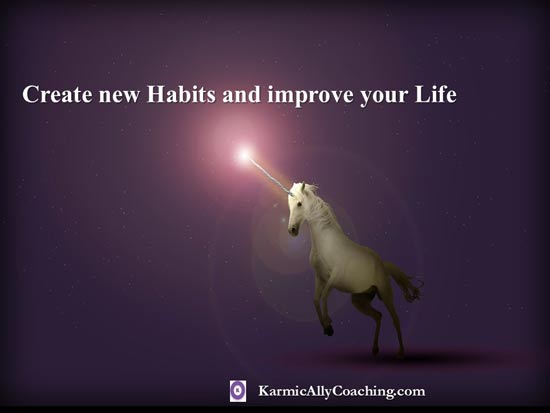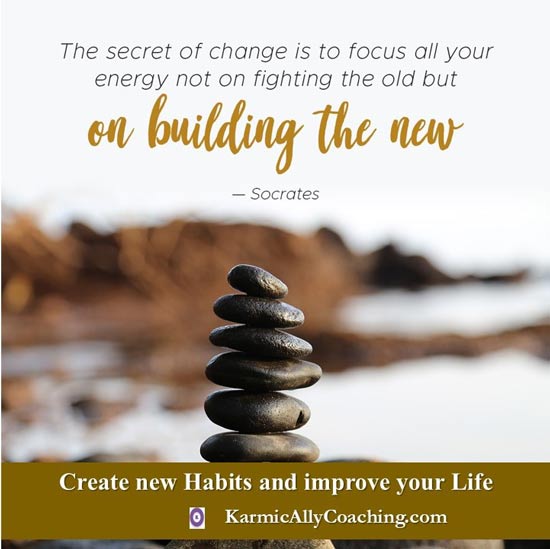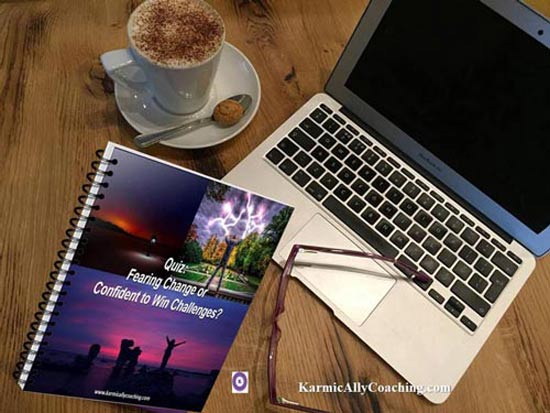
I was reading an article in the New York Times earlier this morning about resets which I feel is relevant to all of us as we approach the second half of 2021.
Let’s face it, the disruption caused by the pandemic can be reframed and considered an opportunity to set and achieve new goals.
It’s an interesting article and it made me pause to think of how times of disruption and transition have created new opportunities for me.
In fact, establishing Karmic Ally Coaching came out of one such disruption and set me off on a completely different track to being an Auditor or CFO.
Behavioral scientists know this already and you would have experienced it at some level when life has served you a lemon or two.
Remember that quote about making lemonade from life’s lemons?
It could have taken the form of a new job, marriage, divorce, losing a job, death of a loved one and many other forms.
This pandemic has definitely thrown everything up in the air and while the dust settles, it’s time to consider new beginnings and making meaningful changes or doing a fresh start.
The article talks about the “fresh start effect” which is about creating changes around “temporal landmarks”.
In simple English, these are points in time that we naturally associate with new beginnings – start of Summer, New Year’s Day, first day of the week or month.
The best way to capitalize on this fresh start effect is to form new habits.
3 Steps to Creating New Habits
We all have times in our lives where we intentionally want to change our behavior for the better and create new habits for ourselves.
This could be getting in the habit of eating healthier and drinking more water. Or it could be moving more and taking the dog for a daily walk or joining a gym.
Or it could be work related, or spiritual, or… There are so many areas in our lives that could be improved and made easier if we created new habits.
Yet getting into the habit of doing something is often easier said than done. It never ceases to amaze me how easy it is to acquire bad habits, but getting into a “good” habit becomes challenging.
I mean, have you ever seen an article or blog post of how to get into a bad habit in x steps, y days or confidence coaching for developing bad habits?
Neither have I.
To be rid of a habit that isn’t serving a purpose, you need to ask yourself if there is a secondary gain involved – like avoiding facing the real issue.
Sometimes the underlying Payoff Factor can be a strong deterrent to positive action.

That being said, let’s looks at a three step process that makes it easy to follow until we’ve internalized the new behavior and made it a true habit – something we do automatically without having to think about, like brushing our teeth.
Decide What You Want To Do
When we do our prayers in Hinduism or even when applying the Law of Attraction to manifest our desires or even in setting a SMART goal, we have to first decide upon what we wish to achieve through our efforts.
Similarly, the first step in changing a habit or adopting a new one is to decide what you want that new habit to be.
Be as specific as possible. Don’t just tell yourself you want to cut down on social media time. Instead say something like “I will log onto Facebook (or any other platform where you lurk around too long) for only 30 minutes a day”.
Deciding what your new habit will be and committing to when and how you’re going to do it, is half the battle.
Remind Yourself To Get It Done
The next few days should be smooth sailing. You’re motivated and excited to get this done. Sticking to your new habit isn’t an issue.
But a few days in you’ll notice that it’s easy to slip back into old habits.
Maybe you’ve finished your work early and have time to spare. Or you’re bored and need some amusement. Or maybe you’ve joined one of those 5 day challenges and are keen to participate and win a prize.
This is when it’s important to have a daily reminder.
Set an alert on your phone for your designated Facebook time with an alarm when the 30 minutes are over or add the new habit to your daily to-do list at a particular time for a while.
Make It Part Of Your Routine Until It Becomes A Habit
Which brings us to the last step. It takes some time before a new behavior becomes a true habit. Until then, a routine will work to your best advantage.
Even before the new behavior becomes automatic, a routine will help you get it done without having to spend a lot of willpower or relying on daily reminders.
Make that social media time part of your downtime routine or fix a specific time after dinner when you want to relax and entertain yourself or socialize with friends, especially during lockdown when going out is not an option.
If you can master the 3 steps of deciding to create the new habit, being conscious of it and practice the routine until it’s second nature, then you’ll be well on your way to forming a new good habit.
What you do require is willingness to change and understand how you handle change. This quiz will help you in preparing your mindset for change.
Beware of the inverse relationship between Habits and Willpower
Hopefully I’ve inspired you to start taking action to imbibe the new habit but it’s only fair that I point out one area that can become a roadblock – your Willpower.
It’s hard to keep up willpower for any length of time. Yes, we can stick to a low-fat 1,000 calorie diet and go hungry for a week or two, but eventually our willpower fades. And yes, we can do exercise we hate for a while… until we run out of willpower.
What about sustaining the habit of not wasting time on social media or giving up the habit of smoking?
We’ve seen it time and again even with intentions set using the temporal location.
For example, we start the year with New Year Resolutions and then after going strong our resolve weakens and we quit. Maybe that’s why there’s a Ditch New Year’s Resolution Day on January 17th (read more about it here).
But getting up to take the kids to school every morning, brushing our teeth or going to work every day don’t seem to require much willpower.
That’s because they have become habits. They are so ingrained in what we do and who we are that we do them without even considering skipping a day or a week.
We don’t have to make a conscious decision each day to shower or drive to work. It’s just what we do – a habit.
When you start to think about it, there is an inverse relationship between habits and will power. When you first want to build a new habit, it takes a lot of will power to get it done day in and day out.
As you start to establish that habit, it becomes easier and easier to do until you don’t even have to think about it anymore.
Just being aware of this process helps us stick it out. We know we don’t always have to make such a big effort to go work out or skip the donut for breakfast.
There is a light at the end of the tunnel. We know eventually it will become habit to go out for a run first thing in the morning and grab some fruit or fix some eggs for breakfast.
While we’re in that transition from willpower to habit, we can use tools to make it easier.
Use a to-do list or set a reminder to help stay on track.
Find an accountability partner so the two of you can motivate each other and help bolster that willpower when it starts to fade after the first enthusiasm wears off.
Do what you can to help your willpower along until you have made the new behavior a true habit. After that it’ll be easy and automatic and you’ve created a new lifelong habit – even during an ongoing pandemic.
And in doing so, you might just find that elusive willpower to give up the bad habits or those that no longer serve you in the new world that is emerging.
What are the new habits you want to keep, and what parts of your pre-pandemic life do you want to change? Are you game to create change in your life for the better?
PS. If you’re looking to make changes to your pre-pandemic life and need a fresh pair of eyes on your situation, I invite you to book a complimentary Change Catalyst Session with me.
Please follow the instructions while booking the call so we make the most of our 30 minutes together.





 I adhere to the Certified Coaches Alliance Code of Ethics and Standards. A copy is available on request.
I adhere to the Certified Coaches Alliance Code of Ethics and Standards. A copy is available on request.
 Let's Talk through the Connect Form:
Let's Talk through the Connect Form: